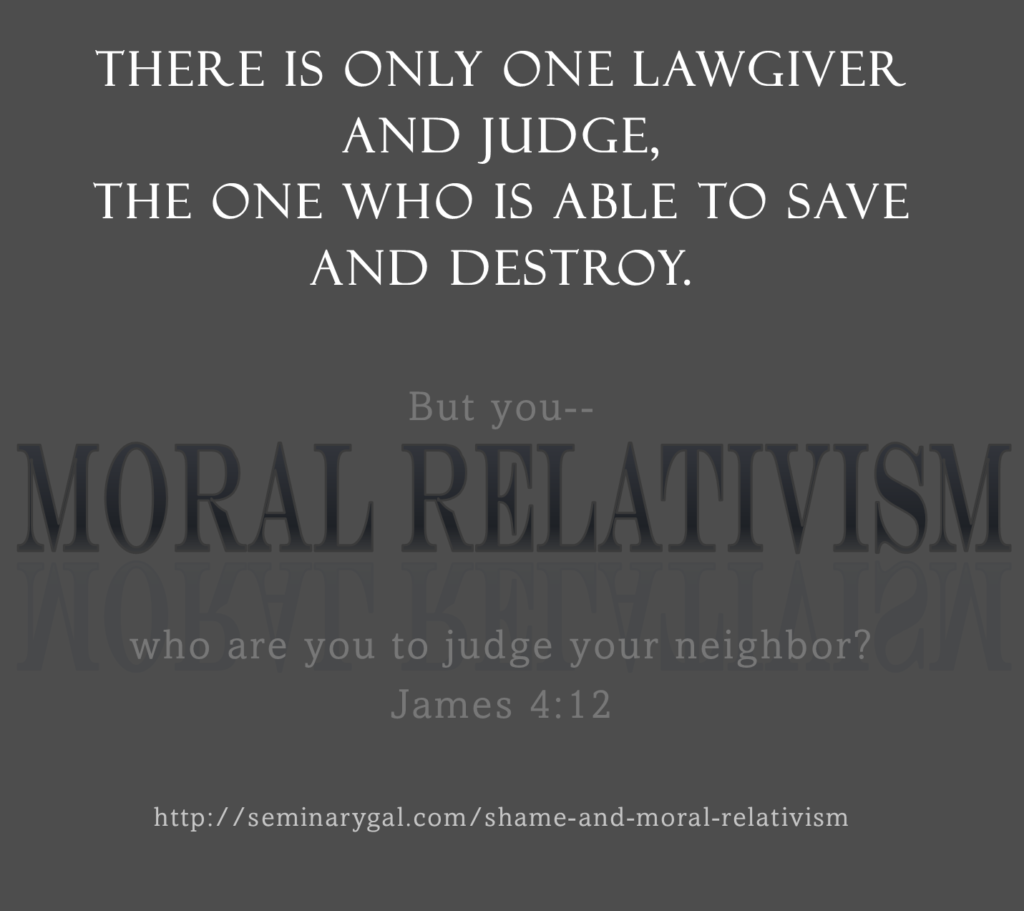Shame and Moral Relativism
There will never be such a lasting and consequential failure
as that of Adam and Eve in Eden
when a single bite of fruit from the forbidden tree
plunged all humanity into guilt and shame.
Nothing we can do will be able to cover our guilt and relieve our shame because it all goes back to God and our separation from Him. And it all began with Adam and Eve, the first to experience shame and fear of God in the negative sense.
Shame and fear—both are rooted in guilt
because it’s guilt when we sin and fail to obey God.
Shame is our reaction when we fall short or remember times we did.
But short of what? That’s the key.
It’s the dividing line between those of faith … and those of the world.
Cultural anthropologists parse shame as arising from transgressing mere cultural or social values. When it’s visible to others and exposed for failure to meet the world’s performance standards, we experience shame.
They parse guilt as privately sourced and dwelling in one’s internal values. In other words, to these cultural anthropologists, you feel shame only when others see your failures to perform or conform, and you feel guilt only when you violate your personal conscience which is linked to your own standards of right and wrong.
When the standards are personal—everything I do is right, maybe everything you do is wrong, then I am justified in everything I do—and that leads to a really warped view. If the murderer of the Jews in the Holocaust can feel justified in genocide, or the killer or live organ harvester of the Uyghurs in China has no conscience about it, where is the guilt?
Wow, it’s a really warped view when one’s standards exist only internally.
This explains why moral relativism is so dangerous, destructive, and why the age we’re living in seems to be spiraling out of control. When we have no anchor, no external reliable truth sometimes called moral absolutes, there is no real conscience about sin or guilt.
Moral Relativism is at the heart of many of the world’s problems.
When each person has his/her own version of the truth
and what constitutes right and wrong, then who holds the moral compass?
It’s the old “Who are you to judge?” taken out of context.

There is only one Lawgiver and Judge, the one who is able to save and destroy. But you– who are you to judge your neighbor? James 4:12
There is One Judge, but culture denies Him. We’ve turned away from the Author and Giver of the Moral Absolutes—our true compass for every human being.


Leave a Reply